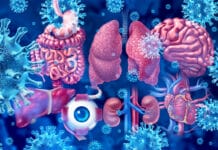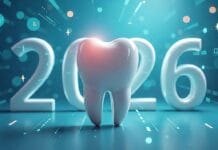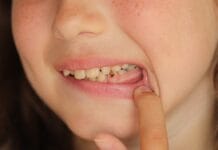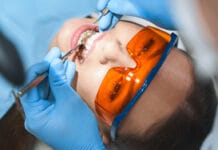To many of us, it feels like just yesterday dental hygiene schools were returning from Christmas break and focusing on upcoming board exams and the start of freshman clinic. Barely two weeks into March, the buzz of the COVID-19 virus swept across campus, and, by March 13, we saw the halt of classes on campus.
The weeks that followed brought about changes to the spring semester. After or around spring break for some, faculty, students, and college institutions witnessed a historical event in education. Campuses across the nation shut down. After a mere two-week pause, some after spring break, it became apparent that colleges were not only shifting to all online platforms for intermittent learning, but college kids far from home were summoned to return to campus housing and pack up.
Dental hygiene schools were no different. In a matter of about one week, entire didactic courses were set online, and we scurried to adjust course schedules, attendance guidelines, and learn more about learning management software (LMS) such Canvas and Blackboard than we thought was possible.
For my family, a sullen end to our freshman’s first year at Hampton-Sydney brought a one-day, 15-hour round trip to campus and back home. I have never packed and loaded a whole dorm room in 90 minutes to return home the same day. A brief conversation with the saddened president in the parking lot and last trip around an empty campus made it seem real.
Impact on Education
The rude awakening from the impromptu trip to his college in Virginia symbolized education for our own programs. We were going to witness a new normal. Shortly after that trip, and a week of frantic prep work, the faculty launched college classes online and virtual for dental educators, “Virtual Dental Hygiene School.” Nationwide, we saw local schools K-12, community colleges, and universities shift to classes online and at home.
On the opposite spectrum, our beloved profession not only witnessed epic restrictions but was deemed nonessential on many levels. Hygienists from across the country fled to social media groups to share stories of the surreal pandemic surrounding the world, our country, and our profession. Lost, scared, shut down, furloughed, laid off, or let go, dental professionals found themselves in a place we have never been before.
In the weeks that followed our closure, the industry leaders we know and love fled to the internet to begin hosting webinars − countless webinars. We owe them many thanks! As a profession, we have dug deep into research, literature, and possible solutions to get dentistry back on our feet.
During these five weeks at home, being a mother, wife, faculty member, dental hygiene coach, and now eighth-grade teacher, I have felt the surge of emotion like everyone else has. During the first few weeks, I was so busy getting a new schedule down and putting course work together that I did not really have time to focus on the outside world. I was taking care of my students and my family. I soon began slowing down into the “new norm.” No real alarm to wake up to, no commute to work except from the bedroom to my office with a quick stop at the coffee pot.
Once logged into my classes, I felt purposeful. My students were filled with frustration, loneliness, and wonder. I began classes with personal conversations and tried to be an advocate, faculty, and friend. In between classes and meetings, I filled my time with text messages to colleagues, Zoom calls, Webinars, and GoToMeetings.
A Shared Pain
Busy was good, but after four weeks, it was taking its toll. Several students reached out for personal interaction, conversation, and just plain old life coaching. I found myself coaching students in both life skills and coping skills. An educators’ job never ends in the classroom, on-campus, or off-campus.
Last week was hard. I found myself less motivated, tired of reading the same posts, and not finding any real new information about how we can return to normal. I was beginning to feel like my students − hopeless. Is this the new normal? When can we return? What will dentistry look like? When will the class of 2020 graduate and be able to take boards? Will CODA ever give us guidelines? Questions so many of us have and still have.
Despite this lack of during week five, I was active in several online groups that involved dental hygienists and educators across the country. Everything I was concerned about, worried about, and thinking about was validated as others were feeling and thinking the same. But something struck me after the third meeting of the minds; I felt refreshed and rejuvenated. I sat quietly one morning over a hot cup of coffee and reflected why I suddenly felt positive!
The rush I felt to gather information to provide security and reassurance to my students is who I am – an educator. The professionals who surround me were honest and openly discussed our concerns. Quickly, we turned our mindset to solution-driven, focused on what must change in order for dentistry to revive, such as PPE changes, as well as the discussion of live vs. simulation boards for students. Educators collaborated on student engagement, student well-being, and mental health.
The bigger elephant in the room is the talk surrounding the Class of 2020 and clinical boards. This article is not a place for that discussion, but it sheds light on the bigger picture, the future of dental hygiene and dentistry.
A Challenge During Downtime
While we don’t know what the future will hold and what changes will come of this pandemic, what we do know is the change is inevitable. Most people dislike change and, in fact, resent it. I personally want to challenge the readers of Today’s RDH with three things.
- Our mindset can help or hinder us by allowing ourselves to open our belief system and be open to change will allow you to get to step 2.
- Growth is defined as the process of developing physically, mentally, or spiritually, the process of increasing in amount, value, or importance. Without change, we cannot grow; without growth, we become stagnant.
- Lack of prosperity during this time gives us the opportunity to forward-thinking, and a means to provide new ways to flourish, thrive, and be successful. Think about the changes in dentistry that can happen if we take this time and utilize it, surrounding ourselves with professionals who can encourage and influence national change.
Allow yourself to think what if: What if this pandemic instigates national licensure, national standards, a model for integrated medical and dental health. Think about the possibilities of a nationwide push to a four-year degree with advanced clinical education then allowing a mid-level care provider nationwide. Dental hygienists are healthcare providers, yet many of us were dismissed as such when the call for help swept the nation.
What can you do now? How can you stay focused and well? Find groups of like-minded professionals and surround yourself with positive people who are seeking solutions to help open up our profession. Seek conversation with others from distant states to find new ideas and solutions. Most of all, take care of yourself − allow yourself time to reflect − be happy, sad, lonely, and frustrated. Then wake up early, read a book, try personal journaling, embrace quiet time, and find a way to be the solution.
I was up at 4:30 a.m. typing away at my keyboard while still in bed with a cup of coffee (I might as well enjoy it while I can, right?). If we all spent time on embracing change and solutions for our future for our profession, our patients and practices, just think where dental hygiene could be.
I will close with one of my favorite motivational talks by US Navy Admiral William H. McRaven. The caption for the video said McRaven “delivers a speech about the importance of doing the little things like making your bed, embracing the fears of life, and changing the world for generations to come.” If you take away one thing from his YouTube video1 and embrace it, you will find yourself doing that one task a day.
If you do it and it makes a difference, let me know! Share your thoughts, struggles, and tasks or pics of your bed with me on my Facebook page. Our profession will prevail from this temporary downtime, and what we do in the downtime can shape us and our profession. I want to be there to cheer our dental hygiene soon-to-be grads, students, educators, and RDHs on!
Be well and stay safe!
Now Listen to the Today’s RDH Dental Hygiene Podcast Below:
Reference
- McRaven, W. 2017. If You Want to Change the World, Start Off by Making Your Bed. Goal Cast, YouTube. Retrieved from https://youtu.be/3sK3wJAxGfs.












